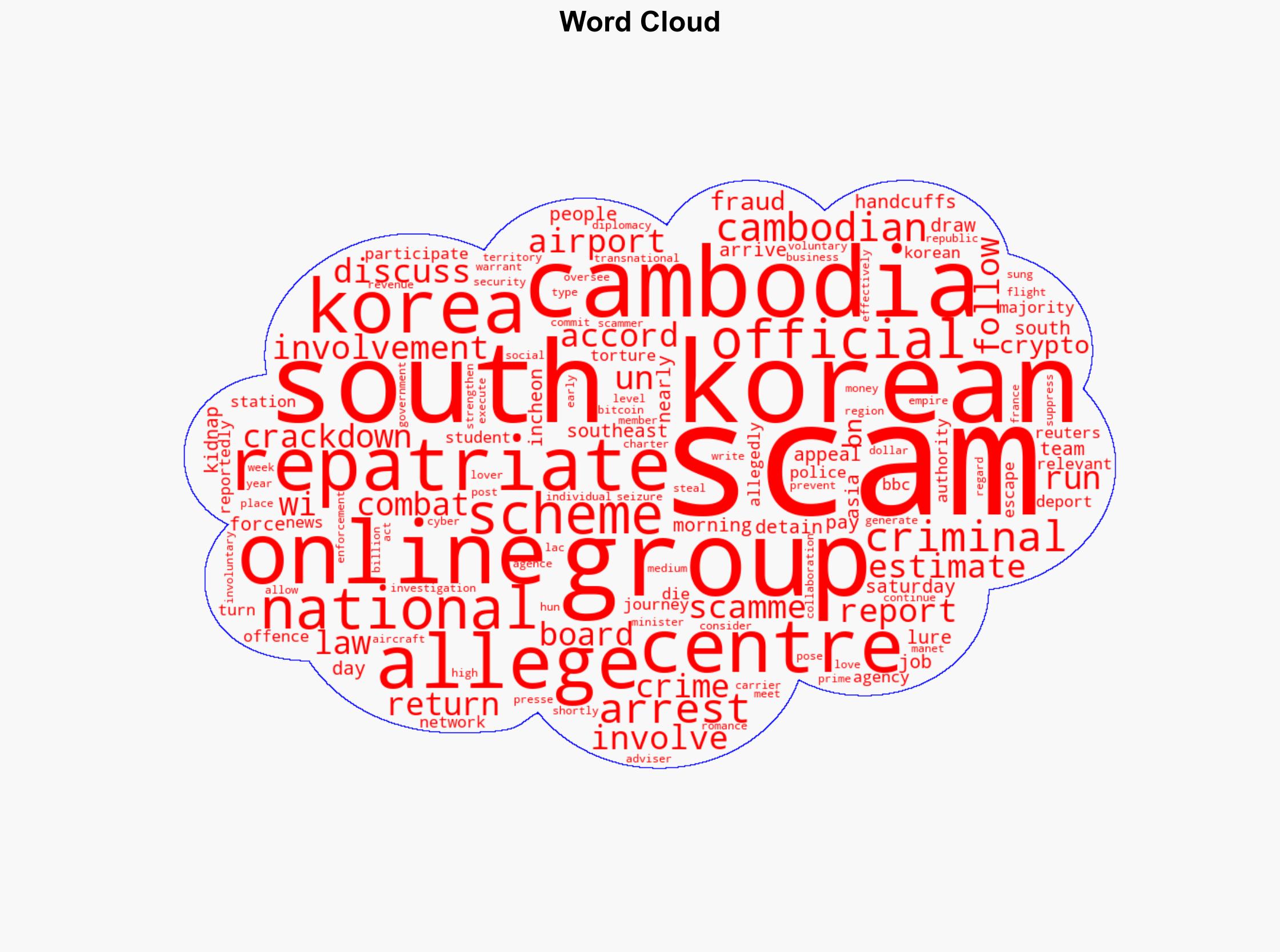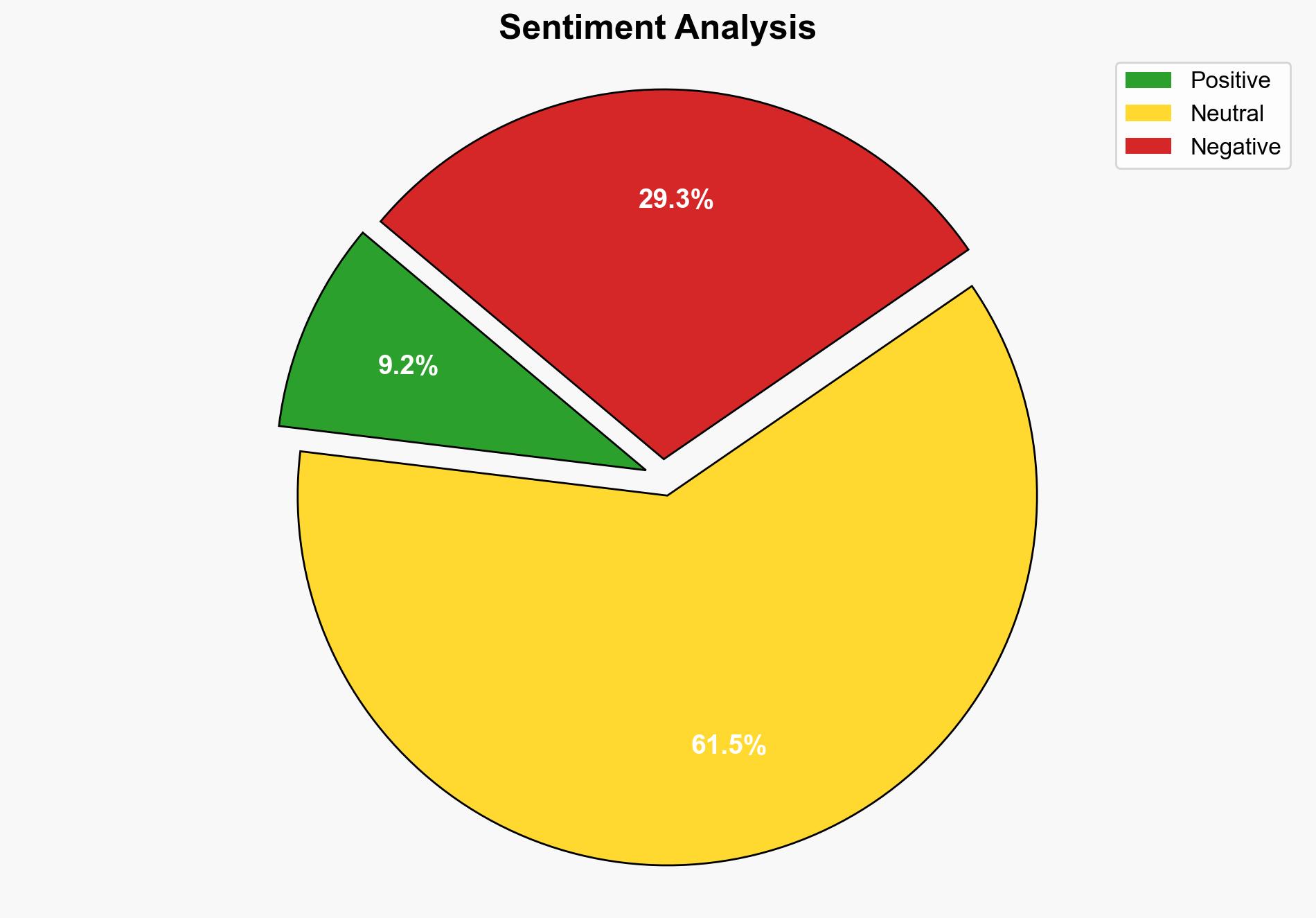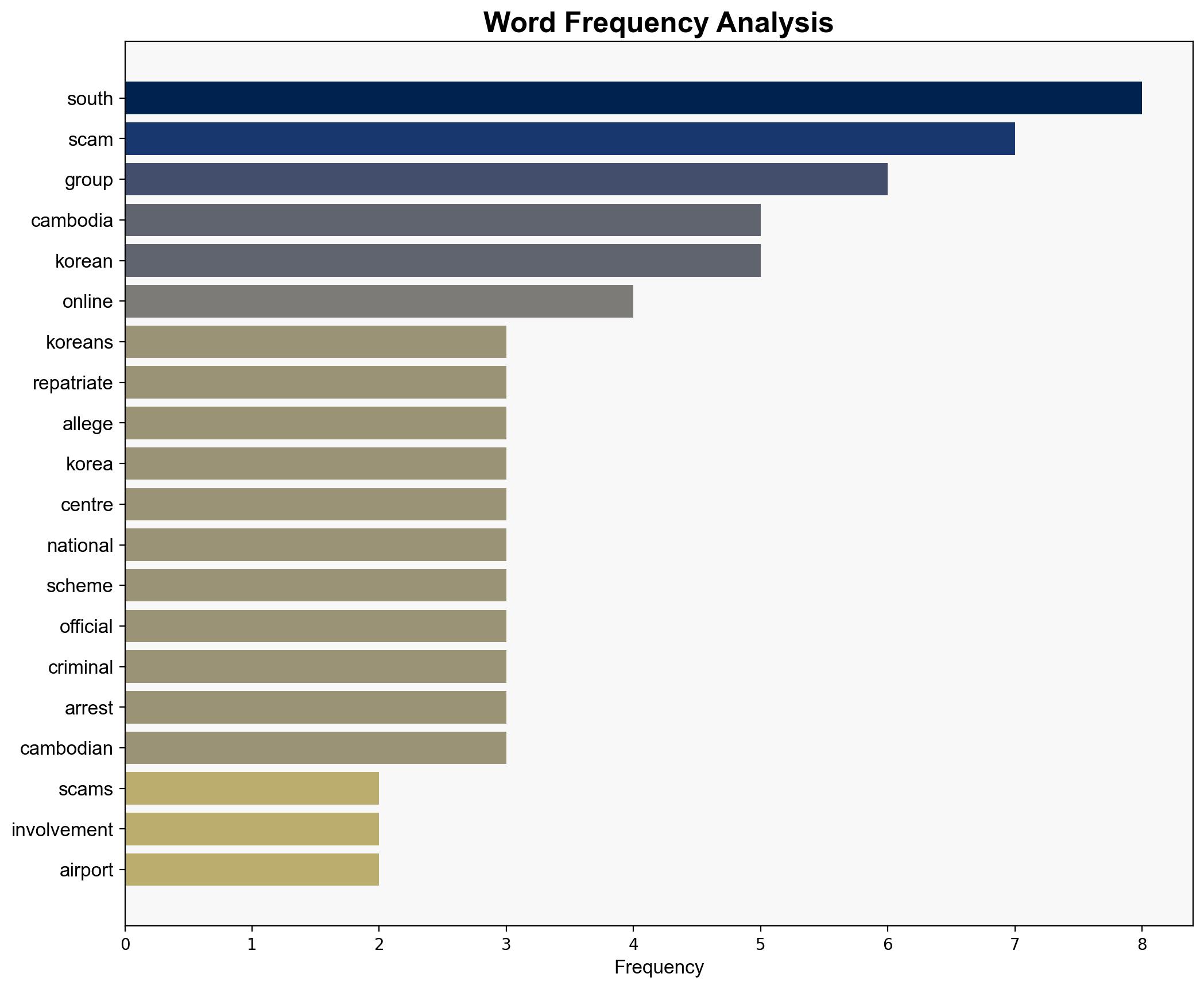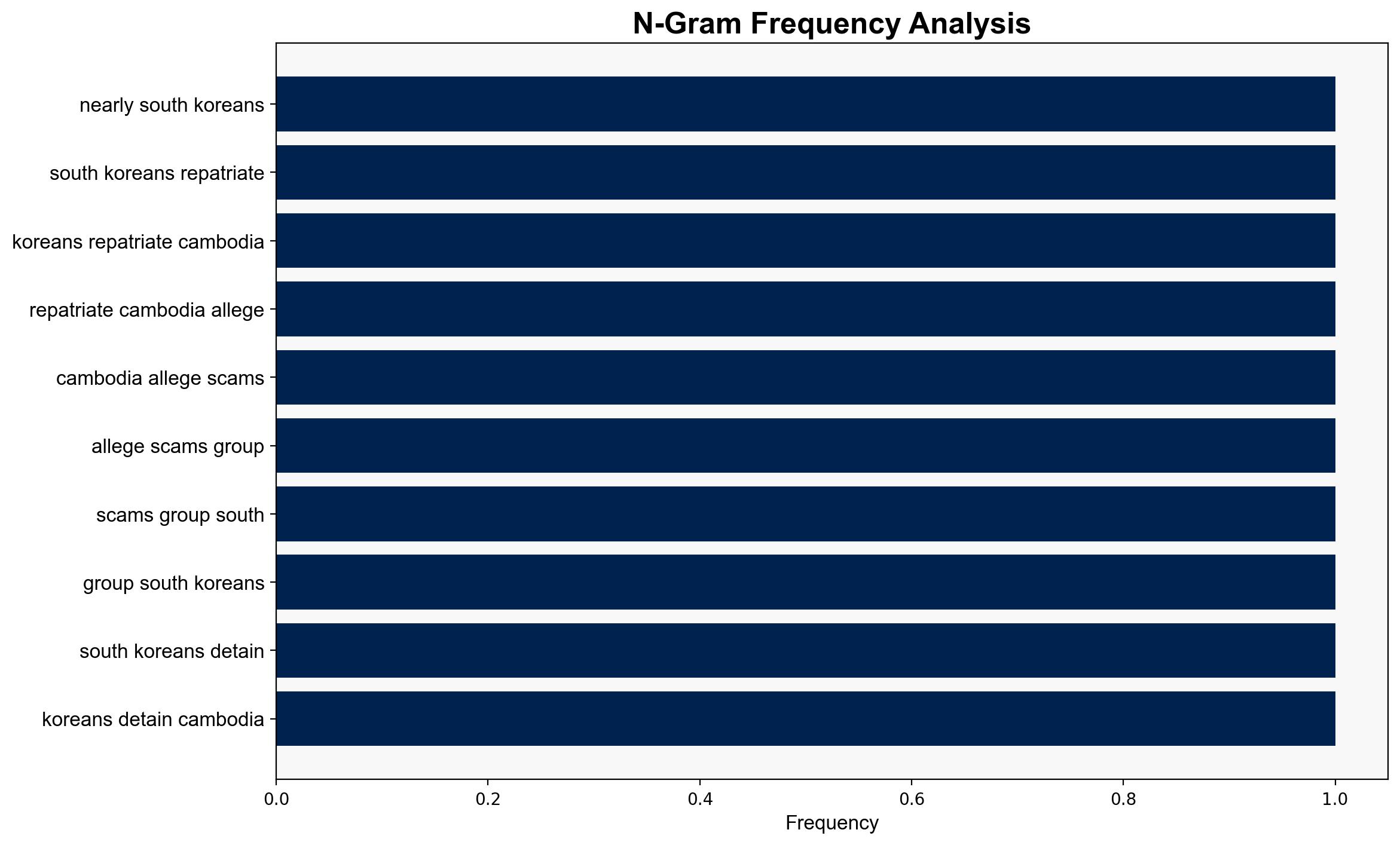Nearly 60 South Koreans repatriated by Cambodia over alleged scams – BBC News
Published on: 2025-10-18
Intelligence Report: Nearly 60 South Koreans repatriated by Cambodia over alleged scams – BBC News
1. BLUF (Bottom Line Up Front)
The most supported hypothesis is that the repatriation of South Koreans from Cambodia is a result of a coordinated crackdown on transnational online scams, involving high-level diplomatic efforts and law enforcement cooperation. Confidence in this hypothesis is moderate due to the complexity and potential hidden dynamics of the situation. Recommended action includes enhancing international collaboration on cybersecurity and monitoring potential retaliatory actions by criminal networks.
2. Competing Hypotheses
Hypothesis 1: The repatriation is primarily a result of a successful diplomatic and law enforcement collaboration between South Korea and Cambodia, aimed at dismantling a significant transnational scam network operating in Southeast Asia.
Hypothesis 2: The repatriation is a superficial action intended to placate international concerns, while deeper systemic issues of corruption and complicity in Cambodia’s law enforcement and political structures remain unaddressed.
Using Analysis of Competing Hypotheses (ACH), Hypothesis 1 is better supported by the reported high-level diplomatic meetings and the specific targeting of scam networks. However, Hypothesis 2 cannot be entirely dismissed due to historical patterns of corruption and the potential for selective enforcement.
3. Key Assumptions and Red Flags
– **Assumptions**: It is assumed that the Cambodian authorities are acting in good faith and that the repatriated individuals are indeed involved in scams. Another assumption is that the diplomatic efforts are genuine and not merely for show.
– **Red Flags**: The lack of detailed information on the individuals’ involvement in scams and the absence of independent verification of the crackdown’s effectiveness are concerning. Historical corruption in Cambodia’s law enforcement raises questions about the integrity of the actions taken.
4. Implications and Strategic Risks
The crackdown could disrupt significant criminal networks, potentially leading to short-term reductions in scam activities. However, there is a risk of these networks relocating or adapting their operations. Geopolitically, the situation may strain Cambodia’s relationships with other nations if perceived as insufficiently addressing the root causes of cybercrime. Economically, the disruption of these networks may impact illicit financial flows in the region.
5. Recommendations and Outlook
- Enhance international cooperation on cybersecurity, focusing on intelligence sharing and joint operations.
- Monitor for potential retaliatory actions by disrupted criminal networks, including cyberattacks or shifts in operational tactics.
- Scenario Projections:
- Best Case: Sustained international collaboration leads to significant reductions in transnational scams.
- Worst Case: Criminal networks adapt quickly, leading to increased sophistication in scam operations.
- Most Likely: Temporary disruption with gradual resumption of scam activities in altered forms.
6. Key Individuals and Entities
– Hun Manet
– Wi Sung Lac
7. Thematic Tags
national security threats, cybersecurity, counter-terrorism, regional focus




